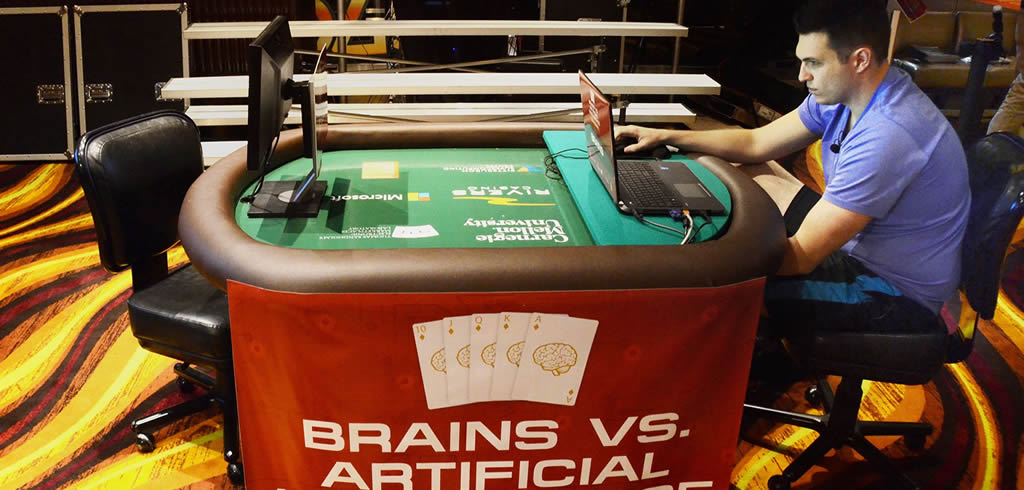Man has won out against the machine in a two week tournament that saw some of the world’s best poker professionals take on artificial intelligence at Heads-Up No-Limit Texas Hold’em.
Nearly 20 years ago, IBM’s famous chess computer, Deep Blue, marked the rise of the computer when it beat Russian chess Grandmaster Gary Kasparov, but it appears computers can’t yet win all games, despite the growth in processing power over the last two decades.
Scientists at Carnegie Mellon University developed their own artificial intelligence software, dubbed Claudico, to compete in a 80,000-hand poker tournament against players such as Jason Les, Bjorn Li, Dong Kim and Doug Polk in a battle for a $100,000 (£63,600) purse at the Rivers Casino in Pittsburgh, Pennsylvania.
The tournament pitted the poker players’ experience and human creativity against a machine that can process millions of moves and probabilities per second, and raised an interesting question about how a player’s ability to read their opponent’s “tells” and strategies affects the outcome of a game.
Claudico’s unorthodox gameplay may be like “playing a Martian” for the poker players as the machine performs “real-time reasoning while playing a hand and improves its strategy during the match by continuously computing,” Sundholm explained to CMU News.
Polk noticed some of Claudico’s strange habits during the tournament, who explained on the event’s website Brains vs AI:
“Some of its bets, for instance, were highly unusual. Where a human might place a bet worth half or three-quarters of the pot, ‘Claudico’ would sometimes bet a miserly 10 percent or an over-the-top 1,000 percent. Betting $19,000 to win a $700 pot just isn’t something that a person would do.”
Another edge the computer holds over its flesh and blood competition is its inability to experience fatigue or lose its concentration on the game. The two-week tournament required each player to go through 1,500 games a day with only one day of rest. An all-night poker game can be enough to exhaust most players, so going against an opponent that never gets tired and never needs to take a break can intimidate even the most die-hard poker fans.
However, this does not appear to have phased the players, who won a very slim victory over the machine.
After over a total of 80,000 hands and $170 million (£108m) of virtual currency being bet, the humans were up $732,713 (£465,698). Li finished in first place up $529,033 (£336,243), while Polk finished up with $213,671 (£135,805) and Kim with $70,491 (£44802). Les was the only player who lost to Claudico, dropping $80,482 (£51,156) worth of virtual chips.
The close results show that “poker is now a benchmark for artificial intelligence research, just as chess once was”, and the technology has a wide array of applications argues Sandholm.
He continued:
“It’s a game of exceeding complexity that requires a machine to make decisions based on incomplete and often misleading information, thanks to bluffing, slow play and other decoys. And to win, the machine has to out-smart its human opponents.
“Computing the world’s strongest strategies for this game was a major achievement — with the algorithms having future applications in business, military, cybersecurity and medical arenas.”
Whilst Claudico or its successors may soon be beating even the best human opponents, poker remains popular with people both online and offline. Despite its popularity dwindling slightly since its boom in the early 2000s, when the spectacular growth of online poker brought the card game into the public eye, thanks in part to the film Rounders as well as a number of amateur-turned-pro players like Chris Moneymaker, the number of people playing the game remains high. This is evident on Betfair’s poker site, where nearly 12,000 users are playing within the tournament section alone, and although none of their matches will be as seemingly endless as the one against Claudico, it’s easy to imagine that some of them would relish the opportunity to take on the world’s most complex AI machine.



